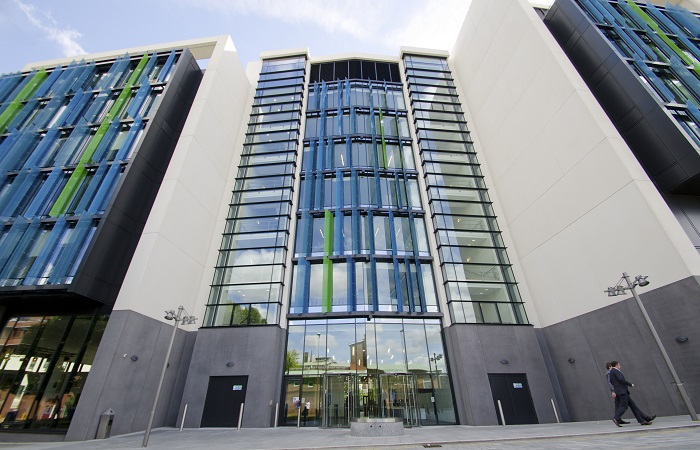
Severn Trent Water has positioned its benefits strategy to place a strong focus on the health, wellbeing and engagement of its 6,500 UK and Ireland-based employees.
The organisation launched a virtual GP service in December 2018, available through its health cash plan and its contractual private medical insurance (PMI), in order to support the health of staff, especially those performing physical roles.
The benefit allows employees to have a face-to-face video consultation with a GP by phone, giving them the opportunity to address concerns without having to attend a surgery in person. They can also receive prescriptions or a referral, if required.
Neil Morrison, HR director at Severn Trent Water, says: “Being able to introduce this was really about trying to help employees. Not to say ‘don’t go to the doctor at all’, but [for] those simple niggles or issues, they can now use the virtual GP service, which means they can fit it around their own working lives rather than having to fit in around surgery times.”
Concentrating on health
The virtual GP service forms part of Severn Trent Water’s wider focus on employee health and wellbeing, alongside benefits such as gym memberships, private medical insurance (PMI), an employee assistance programme (EAP), health screenings and access to mental health first aiders.
“We have a particular focus on health and wellbeing because of the nature of the work we do,” Morrison explains. “It’s quite physical for many people.”
Approximately three to four years ago, the organisation analysed its drivers of employee absence and explored what more could be done in terms of supporting health and wellbeing. The research uncovered that the two leading causes of absence were musculoskeletal disorders (MSDs) and poor mental health.
“Because we have some of those healthcare issues, we’ve got things like health screening, private medical insurance and gym membership, which are really aimed at making sure that we’re keeping the workforce healthy and trying to manage those absence rates because obviously, that is a productivity challenge for us,” Morrison adds.
This focus has paid off, as at the time of the original research, employees fed back that they felt mental health was not taken seriously by the organisation, but results from an annual employee survey conducted in November 2018 found that 85% reacted positively to the statement ‘Severn Trent Water cares about my health and wellbeing’.
Retaining talent
Addressing employee health is also a component of the organisation’s retention strategy. Severn Trent Water is a privately-owned business performing a public service as part of a regulated industry; similar organisations to attract talent from are few and far between, making retention all the more important.
“We [make] sure that we look after people throughout the entirety of their career because we’re quite a unique industry,” Morrison explains. “Making sure that the benefits package helps to retain and motivate people throughout their life-cycle then means that, hopefully, we improve our turnover figures and get the stability and resilience within the organisation that we need to deliver to customers.”
The retention challenge lies in providing a wide range of benefits that appeal to a varied workforce; Severn Trent’s staff are aged between 16 and 75 and are dispersed around the UK and Ireland at 26 different sites. “From individual [employees] who are effectively in a van fixing leaks, to meter readers who are out walking the streets, through to people who are in waste treatment or water treatment sites, call centres, head office; it’s really quite varied,” Morrison says.
With this in mind, Severn Trent Water has had a well-established flexible and voluntary benefits package in place for around four to five years. “It’s very difficult to say one size will fit all,” Morrison notes. “[We have] a broad range that people can tailor. I would say they are effective because they allow those who want to flex to [do so], but our core package is good and so that means that not everybody feels the need to.”
The most recent amendment to this offering was a change of provider for the organisation’s salary sacrifice technology scheme in November 2018. This was to offer employees a wider choice of technology products.
Getting the message out
With such a varied workforce demographic, communication could prove to be a challenge. “It’s about trying to make sure that it’s in many different forms, it’s multi-channel, it’s not just using [a] single approach,” Morrison says.
Primarily, the organisation communicates using weekly or daily team face-to-face or digital briefing meetings, internally known as ‘comm cells’. These discuss performance and targets, as well as messages around benefits.
Severn Trent Water also reaches staff using its intranet, internal social networking tool Yammer and via on-site posters and materials.
Supporting communities
Severn Trent Water also works to engage with local communities, primarily using a volunteering days benefit it introduced in 2015. This enables all employees to take two days of paid leave a year to complete volunteering projects; although employees can choose their own initiatives to support, Severn Trent Water can also organise volunteering opportunities on behalf of employees, often undertaken in teams. These are chosen to align with employer branding and will often focus on environmental projects.
Morrison explains: “When customers can see Severn Trent [Water] employees cleaning out a river, there’s a real sense of pride of giving something back, over and above the service that we normally provide. People enjoy it because they are giving something back to the communities that they work in. It’s also about [the organisation’s] brand.”
On average, the take-up rate for the volunteering days is 40%. “The vast majority of our workforce live in the areas that we serve; our staff live in the communities that we provide a service to. For the cost of two days a year paid, we get a huge amount of value back from that, not just in terms of our workforce, but also from the communities which they’re going in to. It has a really engaging effect,” Morrison adds.
Moving forwards
For 2019, Morrison and his team will be conducting a more detailed survey to understand which benefits employees value, as well as what they would like to see added to the reward package. Severn Trent Water looks at benefits usage on an annual basis, but the last time a comprehensive survey of this ilk was done was three to four years ago.
“It’s about breadth and choice,” Morrison concludes. “We’re spread over a number of sites with people having various levels of technology and so how do we make sure that people are kept aware, that they’re interacting with them? There’s a lot [of focus] around just keeping the freshness, the engagement and the awareness high.”
At a glance
Severn Trent Water is a water and waste water treatment provider based in the Midlands. The organisation, which has 6,500 employees across the UK and Ireland, serves more than four million homes located within the central region of the UK.
Severn Trent Water is a FTSE 100 business operating within a regulated industry, acting as a privately-owned public service. It has around 26 operating sites.
Typical roles within the organisation include operational positions, such as those in treatment plants or performing front-line duties, as well as customer-focused jobs, dealing with queries, issues and billing. Severn Trent Water also employs a number of engineers, primarily working on water infrastructure and completing capital projects.
The average age of the business’ workforce is 40 and the gender split is 70% male to 30% female. The average tenure is nine years, although around 650 staff have more than 25 years’ service.
Business objectives
- To fulfil any outstanding commitments made for the last five-year regulatory period; the 2019 to 2020 financial year is the final year for this period before the commencement of the next five-year cycle.
- To ensure agreed capital projects are in place.
- To meet commitments made to customers.
- To prepare for the new, upcoming five-year regulatory period and plan what this will look like for the business.
 Career history
Career history
Neil Morrison, HR director, joined Severn Trent Water in July 2017. Prior to this role, he spent approximately nine years at publishing organisation Penguin Random House, where he worked in positions such as group HR director and director, strategy, culture and innovation. He was also employed at Home Retail Group for around eight years, performing roles such as HR manager and head of HR. Morrison’s career has seen him undertake both specialist and generalist HR work.
There are many projects Morrison has been particularly proud of over the course of his career; these include helping to lead the global merger between Penguin and Random House, as well as his work on improving social mobility at both Severn Trent Water and Penguin Random House.
On an industry level, Morrison champions a common-sense approach within the HR profession. “It’s not a particular objective that was delivered in one organisation, but through various writing and speaking [opportunities] and being involved with the [Chartered Institute of Personnel and Development] and other organisations, [I want to drive] a much more pragmatic approach to the profession,” he explains.
Read more…